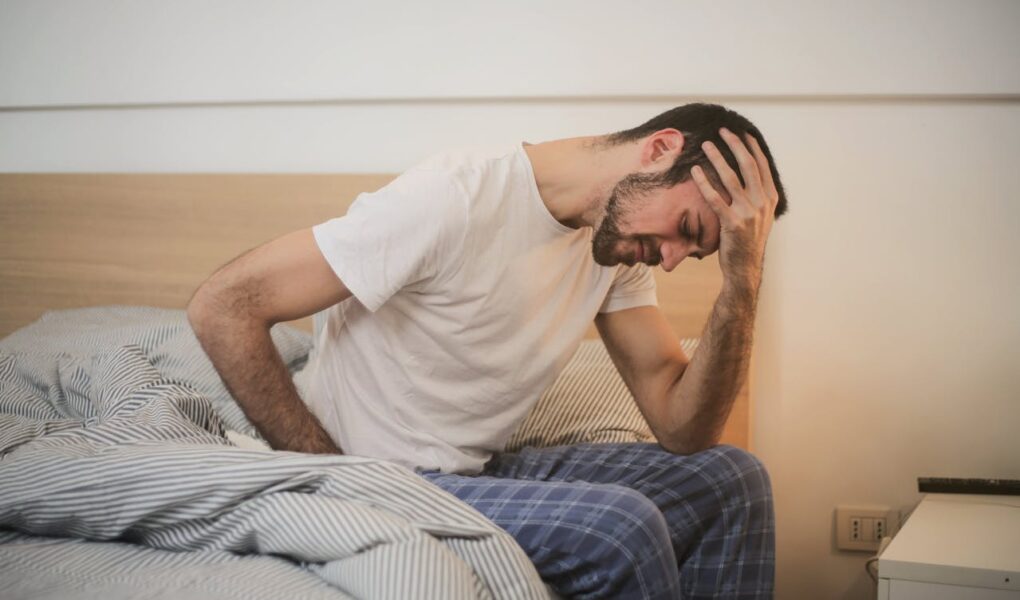Understanding Sleep Anxiety: Symptoms, Causes, and Coping Strategies
Sleep anxiety, also known as nocturnal anxiety or bedtime anxiety, refers to feelings of worry, fear, or apprehension related to sleep. While it’s common to experience occasional stress or nervousness before bedtime, persistent sleep anxiety can significantly impact sleep quality and overall well-being. In this comprehensive guide, we’ll explore the symptoms, causes, and coping strategies for managing sleep anxiety.
1. Symptoms of Sleep Anxiety
- Difficulty Falling Asleep: Individuals with sleep anxiety may struggle to fall asleep despite feeling tired. Racing thoughts, worries, or physical tension can make it challenging to relax and drift off to sleep.
- Nighttime Awakening: Sleep anxiety can cause frequent awakenings throughout the night. Individuals may wake up feeling startled, anxious, or restless, making it difficult to return to sleep.
- Physical Symptoms: Physical manifestations of sleep anxiety can include muscle tension, rapid heartbeat, sweating, or gastrointestinal discomfort. These symptoms may exacerbate feelings of anxiety and make it harder to fall asleep.
- Preoccupation with Sleep: Constant preoccupation with sleep, bedtime rituals, or sleep-related behaviors (such as checking the clock or sleep-tracking apps) can be indicative of sleep anxiety. Obsessive thoughts about sleep can perpetuate the cycle of anxiety and sleep disturbances.
2. Causes of Sleep Anxiety
- Stress and Worry: Daily stressors, unresolved concerns, or excessive worrying can trigger sleep anxiety. Individuals may ruminate on past events, anticipate future challenges, or feel overwhelmed by responsibilities, leading to heightened anxiety at bedtime.
- Underlying Mental Health Conditions: Sleep anxiety can be a symptom of underlying mental health disorders such as generalized anxiety disorder (GAD), panic disorder, or post-traumatic stress disorder (PTSD). These conditions can disrupt sleep patterns and exacerbate feelings of nighttime anxiety.
- Trauma or Negative Sleep Associations: Previous traumatic experiences, negative sleep associations (such as associating bedtime with discomfort or fear), or past sleep disturbances (such as nightmares or insomnia) can contribute to the development of sleep anxiety.
- Sleep Environment and Habits: Environmental factors such as noise, light, temperature, or uncomfortable bedding can disrupt sleep and trigger anxiety. Irregular sleep schedules, excessive screen time before bed, or stimulant consumption (such as caffeine or nicotine) can also interfere with sleep quality and exacerbate anxiety.
3. Coping Strategies for Sleep Anxiety
- Establish a Relaxing Bedtime Routine: Create a calming bedtime routine to signal to your body that it’s time to unwind and prepare for sleep. Activities such as reading, gentle stretching, deep breathing exercises, or listening to soothing music can help promote relaxation.
- Practice Stress Management Techniques: Incorporate stress-reduction techniques into your daily routine to manage anxiety levels. Mindfulness meditation, progressive muscle relaxation, or guided imagery exercises can help alleviate tension and promote restful sleep.
- Limit Stimulants and Screen Time: Avoid stimulants such as caffeine and nicotine in the hours leading up to bedtime, as they can interfere with sleep quality. Minimize screen time and exposure to electronic devices, particularly blue light-emitting screens, close to bedtime.
- Create a Sleep-Conducive Environment: Optimize your sleep environment by ensuring that your bedroom is cool, dark, and quiet. Invest in a comfortable mattress and pillows, and consider using white noise machines or earplugs to block out disruptive sounds.
- Seek Professional Support: If sleep anxiety persists despite self-help strategies, consider seeking support from a healthcare professional. Cognitive-behavioral therapy for insomnia (CBT-I), relaxation techniques, or medication options may be recommended to address underlying anxiety and improve sleep quality.
Conclusion
Sleep anxiety can significantly impact sleep quality and overall well-being if left unaddressed. By recognizing the symptoms, understanding the underlying causes, and implementing effective coping strategies, individuals can take proactive steps to manage sleep anxiety and promote restful, rejuvenating sleep. Remember that seeking professional support is a valuable resource for addressing persistent sleep disturbances and improving overall sleep health.











